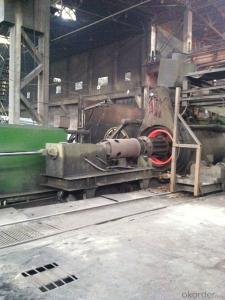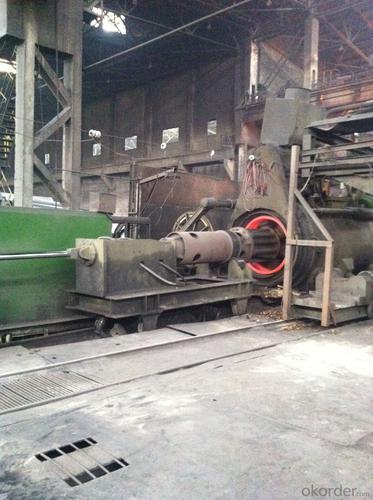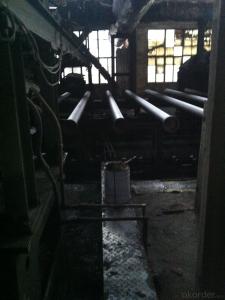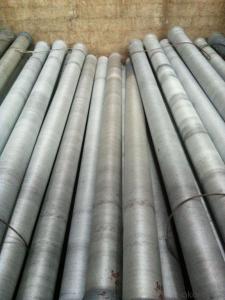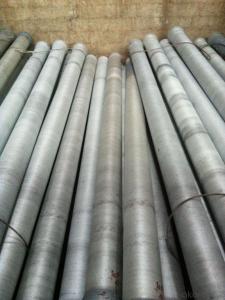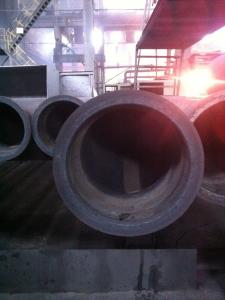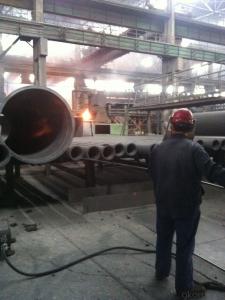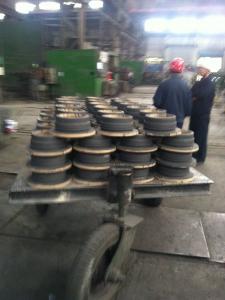DUCTILE IRON PIPES AND PIPE FITTINGS K9 CLASS 500
- Loading Port:
- Tianjin
- Payment Terms:
- TT OR LC
- Min Order Qty:
- 22 pc
- Supply Capability:
- 3000 pc/month
OKorder Service Pledge
OKorder Financial Service
You Might Also Like
Material : Ductile Cast Iron
Size Range : DN 80mm to DN 2000mm
Unit Effective Length : 6m or 5.7m
Manufacture Standard: ISO 2531:1998/ EN 545:2006/EN 598:2007
Annual capacity : 200,000 tons
Coating Exterior: Zinc 130g/m2 according to ISO 8179-1 and bitumen coating 70 microns.
Cement Interior: Portland Cement/ High Alumina Cement/ Sulphate Resisting Cement Lining according to ISO 4179
Special requirements on external coating and internal lining can be applied
We also provide accessories such as SBR/EPDM rubber gaskets, lubricant paste, pipe caps, PE sleeves, etc.
Additional Parts:
Each pipe is strictly inspected according to related standard to ensure permanently high performance.
Easy Installation at site and service free for life
Long Service Lifespan
Quotation will arrive you within 24hours once we get your inquiry.
We guarantee offering you a competitive price.
A copy of original inspection reports of pipes will be offered after shipment.
Photos of loading process will be sent to the customer after shipment effect.
We will follow-up the delivery progress after shipment effect and update to the customer on weekly basis.
- Q: Are ductile iron pipes suitable for mining applications?
- Yes, ductile iron pipes are suitable for mining applications. Ductile iron is a type of cast iron that has been treated to enhance its strength, durability, and ductility. These pipes are known for their high tensile strength and resistance to corrosion, making them ideal for underground mining operations where they may be exposed to harsh conditions. One of the key advantages of ductile iron pipes in mining applications is their ability to withstand high pressure and heavy loads. They have excellent structural integrity and can resist both internal and external forces, ensuring reliable performance in demanding mining environments. Additionally, ductile iron pipes have a long service life and require minimal maintenance. They are highly resistant to abrasion, which is crucial in mining operations where abrasive materials like rocks, minerals, and ores are present. The smooth inner surface of these pipes also minimizes friction, allowing for efficient transportation of mining materials. Moreover, ductile iron pipes are cost-effective compared to alternative materials like steel or concrete. They have a lower upfront cost and require less frequent replacements, resulting in reduced long-term expenses for mining companies. In conclusion, ductile iron pipes are well-suited for mining applications due to their strength, durability, resistance to corrosion and abrasion, long service life, and cost-effectiveness. These pipes provide reliable and efficient transportation of mining materials, contributing to the overall efficiency and productivity of mining operations.
- Q: The difference between HDPE pipe and ductile iron pipe
- Production process is different, ductile iron pipe mainly through intermediate frequency furnace heating, annealing, and then do cement lining cement lining production, the mechanism of cast iron pipe does not make cement lining.
- Q: When the ductile iron pipe is pressed, the three links are always running out. What should be done?
- If the pipe is not laid, but installed outdoors, it is recommended to cement the pier and stabilize the pipe at the three and the pipe connection. The problem of the above situation lies in the pressure test in the open air, the outer wall of the pipe without the external pressure and the balance of internal pressure. Xin hot pipe industry
- Q: How to correctly measure ductile iron pipe
- The outer diameter of the ball tube is measured around the outer edge of the pipe. The caliper is used to measure the inside diameter of the pipe. The length of the pipe is measured by a ruler or tape measure,
- Q: What is the average diameter range of ductile iron pipes?
- The diameter of ductile iron pipes can vary depending on the application and industry standards. In general, there is a wide range of diameters available to meet different requirements. Ductile iron pipes can start from as small as 4 inches (100 mm) and go up to 64 inches (1600 mm) or even larger. These sizes are commonly used for water distribution, sewer systems, and infrastructure projects. It is important to consider factors such as local regulations, project specifications, and engineering considerations when determining the appropriate diameter range. Consult industry standards and relevant authorities for specific applications.
- Q: Do ductile iron pipes require external coatings or wraps?
- Ductile iron pipes typically require external coatings or wraps to protect against corrosion. Despite being strong and durable, ductile iron is still prone to corrosion when exposed to specific environmental conditions. Applying external coatings or wraps adds an extra layer of protection, extending the lifespan and maintaining the structural integrity of the pipes. These coatings can vary and may consist of materials like epoxy, polyethylene, or zinc, acting as a barrier between the pipe surface and corrosive elements in the environment. Additionally, wraps made of materials such as polyethylene or polypropylene can provide mechanical protection against impact or abrasion. Therefore, it is generally advisable to apply external coatings or wraps to ductile iron pipes to enhance corrosion resistance and ensure long-term performance.
- Q: Can ductile iron pipes be used for cooling water systems?
- Indeed, cooling water systems can utilize ductile iron pipes. Renowned for their resilience, robustness, and resistance to corrosion, ductile iron pipes are a fitting choice for various applications, including cooling water systems. With the ability to withstand high pressure and temperature fluctuations, these pipes excel in circulating and transporting cooling water. Moreover, their smooth interior surface mitigates friction, diminishing the likelihood of scaling or blockages and enabling the efficient flow of cooling water. Consequently, ductile iron pipes emerge as a dependable and efficient option for cooling water systems.
- Q: What's the difference between ductile iron pipe and cast iron pipe?
- Ductile iron pipe is based on cast iron, changed some of the characteristics of the structure of iron, so that it has become a lot of toughness, than the cast iron pipe is too brittle shortcomings much better, the tensile strength of the pipe bending strength greatly improved. The sealing material used in the socket interface is rubber ring.
- Q: What are the advantages of using ductile iron pipe over HDPE pipe?
- Ductile iron pipe offers several advantages over HDPE pipe. Firstly, it has a higher strength and durability, making it suitable for high-pressure and heavy-duty applications. Secondly, it has better resistance to external loads, such as traffic or soil pressure. Additionally, ductile iron pipe has superior fire resistance and is less susceptible to damage from UV rays. Moreover, it has a longer lifespan and requires less maintenance compared to HDPE pipe. Lastly, ductile iron pipe has better flow characteristics, resulting in lower energy consumption for pumping systems.
- Q: Are ductile iron pipes suitable for horizontal directional drilling?
- Yes, ductile iron pipes are suitable for horizontal directional drilling due to their high strength and flexibility, which allows them to withstand the stress and bending forces during the drilling process.
Send your message to us
DUCTILE IRON PIPES AND PIPE FITTINGS K9 CLASS 500
- Loading Port:
- Tianjin
- Payment Terms:
- TT OR LC
- Min Order Qty:
- 22 pc
- Supply Capability:
- 3000 pc/month
OKorder Service Pledge
OKorder Financial Service
Similar products
Hot products
Hot Searches
Related keywords
